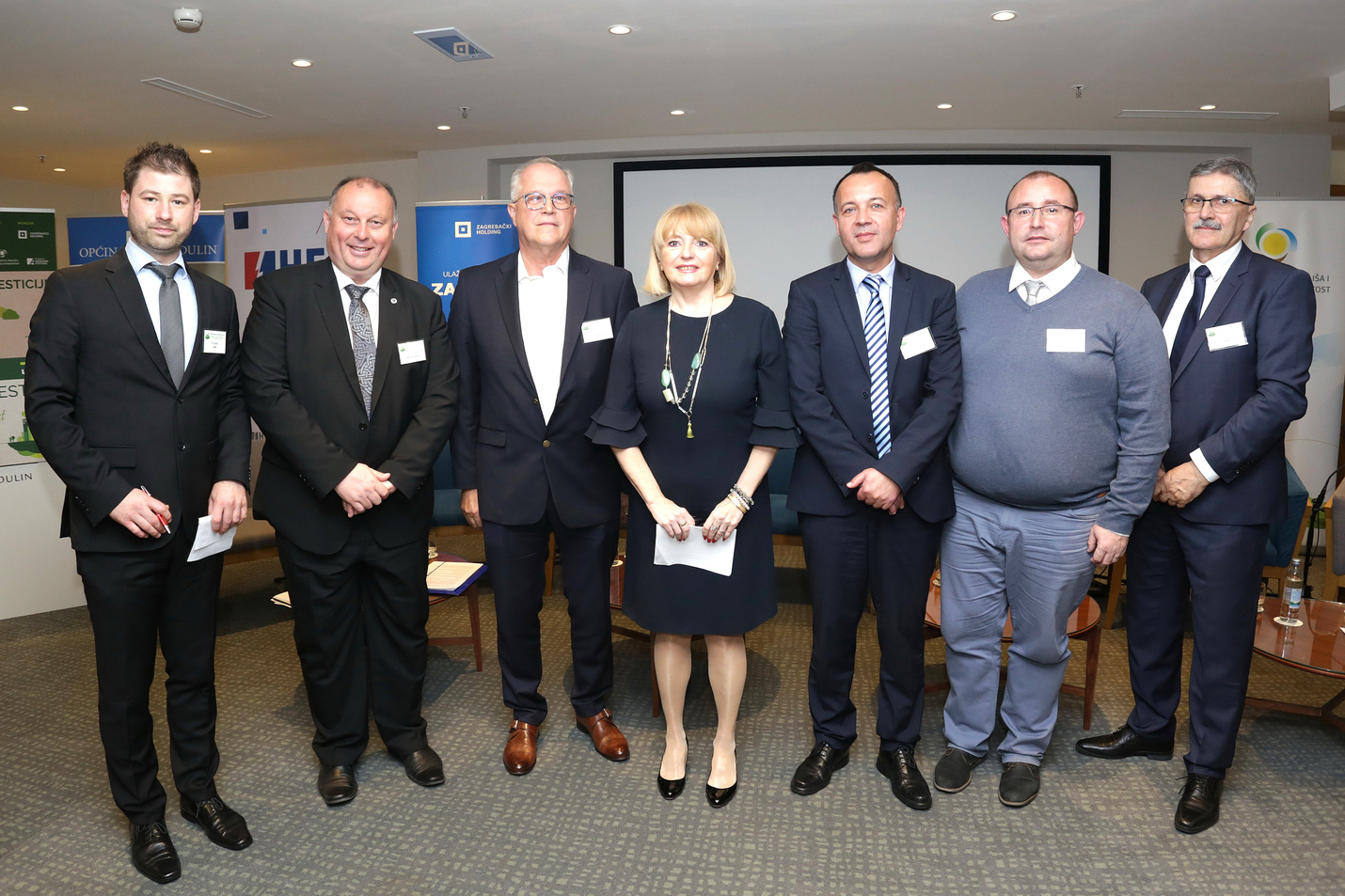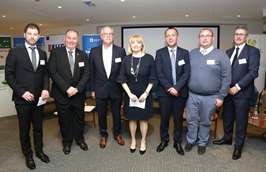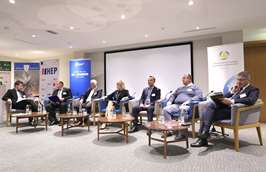29.03.2019.
This year, as in the previous years, the 2-day conference in the organisation of the magazine Lider entitled “2019 Greenfield Investments: How Dreams Become Reality”, gathered numerous highest state and local representatives, experts, ministers, heads of counties, mayors, representatives of Croatian and foreign institutions, bankers, managers, and entrepreneurs, as well as the representatives of large investors that have successfully implemented, or are planning to implement investment projects in Croatia. The aim of the event was to present the role of the, so-called, Greenfield investments in the development of the Croatian economy, and to propose the solutions to the obstacles, and stimulate the new investment cycle.
The conference put emphasis on the development and investment challenges of the local self-government units. Investments and the most frequently faced challenges were discussed in several panels, one of which was dedicated to the importance of publicly owned companies and companies owned by local self-government units. The panellists, one of whom was Alenka Košiša Čičin-Šain, the deputy director of the Environmental Protection and Energy Efficiency Fund, agreed that they can definitely be the drivers of investments, especially if they relied on EU funds. The need to recruit quality staff who were familiar with the procedures, EU legislation and regulations was pointed out as one of the most important aspects, and as the main risks they mentioned potential corrections.
“The Environmental Protection and Energy Efficiency Fund has an important role in the implementation of Operational Programmes as an intermediate body that evaluates, controls, and monitors the projects financed from EU funds. We are talking about more than 1 500 projects aimed at not only improving the quality of life of the citizens, but also generating local investments, and in that sense we have a great partnership with the local units,” said Mrs. Čičin-Šain, adding that success requires perseverance, shortening of deadlines for some projects, and providing all the necessary infrastructure in order for some investments to be carried through. “Good communication makes everything possible,” she added.
Enco Crnobori, the director of the utility company from Medulin Med eko servis, said that they had been following the entire EU legislation and recommendations concerning separate collection of waste, they had been preparing for it for years, and had been investing in the system. He mentioned waste separation as one of the greatest challenges.
Investment projects that were ongoing or in the final phase were presented by Ivica Plišić from the company Ponikve voda. He said that he it was a bit more straightforward for him being the manager of the utility company on an island than it was for the director of the Croatian water management company Hrvatske vode, because instead of operational work, there is a lot of politics.
Dalibor Macan, head of Municipality Svetvinčenat, talked about how he managed to revive the municipality from being one of the lowest developed areas in Istria County. This process was facilitated by investments from EU funds, as well as from the factories TDR and Istragrafika, which opened new jobs on Kanfanar, because the Municipality itself was not able to do that. “Kudos to the people who are responsible for withdrawing EU funding; they are excellent young people who were employed under a rather unpopular measure of professional training,” said Macan.
Boris Sabatti mentioned the assistance which the Istria Development Agency was providing to entrepreneurs. He underlined that the company Infobip was developed owing to this assistance. The majority of directors of companies owned by the state or local self-government units in Europe hail from the private sector, as many as 44 percent, said Tomislav Globan from the Faculty of Economy of the University in Zagreb, who presented the best experiences in the management of companies owned by local self-government units.
The head of Municipality Medulin, Goran Buić, presented the new system of management of the companies Albanež, MedEko, Buža and Medulin rivijera. He said that all companies were associated vertically and horizontally, and their common goal was having satisfied citizens.
At the conference organised by Lider magazine, Nikola Alilović, member of the project team from the City Office for Physical Planning and Construction of the City of Zagreb, presented the investment project “Sljeme Funicular”. Three years had passed from the conceptual design to the commencement of works, he said. “This investment is worth 420 million kunas. The works will last for 15 months, the new funicular route will be 5017 meters long, with the capacity of 1500 persons/hour, and the ride will last 17 minutes,” announced Alilović.








